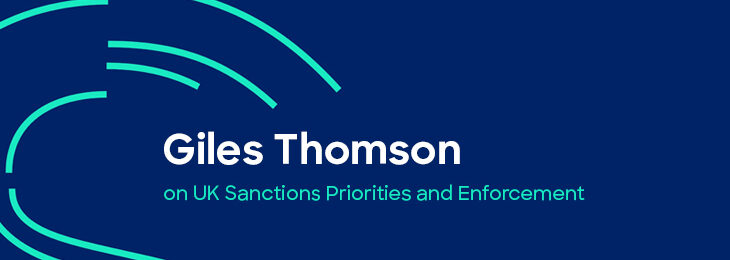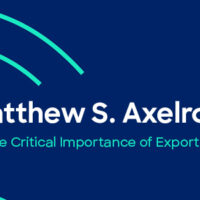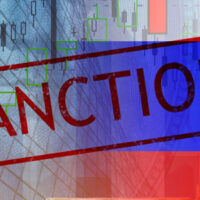
2020 will be remembered as the year the world changed abruptly. In late January, just after the Chinese New Year, the coronavirus pandemic erupted and spread worldwide. Criminals quickly took advantage of the situation by hoarding masks, sanitizers and other consumer products used to fight the virus. For the financial industry, the pandemic changed how financial institutions (FIs) provided services and, in particular, how customers are banked. As of this writing, “virtual” and “remote” are the new normal in the way everyone works and lives.
As governments struggled to identify and contain the spread of the virus, the media highlighted fraudulent scams and cybercrimes, including identity theft, duping vulnerable groups, as well as stealing medical products and supplies and replacing them with counterfeit products. Companies and the general public were fleeced as criminal organizations took advantage of and misappropriated government subsidies. Financial crime prevention professionals had to rise above the fray and become heroic in their work, collaborating with law enforcement to detect and report criminal activities amidst the lockdowns and disruptions.
When discussing anti-financial crime compliance, terms such as “evolution” and “transition” were traditionally used to describe how regulations and policies respond to new challenges and emerging threats. However, during the pandemic, terms such as “speed” and “transformation” have been used to describe the need for greater industry knowledge and better systems to prevent criminals from enjoying the proceeds of crime. In 2020, three uncharacteristic themes emerged—virus, trade and crime. These themes emphasize the need for enterprise-wide risk mitigation efforts.
Politics, Trade and Sanctions
As the slow economic and military tango between China and the U.S. has unraveled over the past four years, the world witnessed a rapid escalation in tension in 2020. The Trump administration levied trade tariffs on Chinese goods, applied trade sanctions and identified further conflict areas. The Hong Kong Autonomy Act was enacted when the Chinese Standing Committee of the National People’s Congress in China interceded in Hong Kong’s national security law.
The Chinese leadership appears to have reacted in a measured way; first by negotiating and then reciprocally applying countervailing duties against U.S. goods. The establishment of the unreliable entity list (UEL) by China’s Ministry of Commerce highlights the weaponization of sanctions as a political policy tool. The UEL is designed to capture “foreign entities”—a term referring to enterprises, other organizations or individuals of a foreign country that have taken actions in international, economic, trade and/or other relevant activities. It should not come as a surprise to astute China watchers that the global economy is dramatically shifting toward China as an economic and political superpower. With politics and trade becoming further entangled, sanctions will be used as a policy tool for years to come.
This entanglement created an aura of such uncertainty that the Hong Kong Monetary Authority (HKMA) issued two similar circulars on financial sanctions, setting out its expections for authorized institutions and stored value facility (SVF) licensees respectively. The HKMA clarified the distinction between targeted financial sanctions applicable under Hong Kong law and unilateral sanctions imposed by foreign governments. The HKMA confirmed that unilateral sanctions imposed by foreign governments have no legal status in Hong Kong, therefore no obligation is created for authorized institutions and SVF licensees under Hong Kong law. However, the HKMA expects authorized institutions and SVF licensees to assess all risks involved carefully based on a balanced approach and decide whether to continue providing banking services to an individual or entity designated under a unilateral sanction, endeavoring to treat customers fairly.
The establishment of the unreliable entity list (UEL) by China’s Ministry of Commerce highlights the weaponization of sanctions as a political policy tool
Rising Crime
Sophisticated crimes continue to rise and evolve. This was clear from the Panama Papers and now from the leaked suspicious activity reports (SARs) filed by banks with the U.S. Financial Crimes Enforcement Network (FinCEN). These unmasked criminal syndicates are linked to professional advisors and financial industry players willing to sell their advice and services―crime appears to pay.
Enforcement Actions
Regulatory actions have always been a great concern for FIs and while banks remained the subject of heightened scrutiny, regulators are also turning their attention to nonbank financial institutions.
In the Asia-Pacific (APAC) region, the following regulators took enforcement action:
- In the Federal Court of Australia, the Australian Transactions and Reports Analysis Centre (AUSTRAC) and Westpac jointly filed an agreed statement of facts, including a proposed civil penalty of AU$1.3 billion ($945 million) for anti-money laundering/counter-terrorist financing (AML/CTF) breaches and child endangerment charges resulting from the bank’s facilitation of payments for related online services.1
- The Monetary Authority of Singapore (MAS) revoked the license of a Singapore-based asset management firm and fined two trust companies for AML/CTF control failures: Asiaciti Trust Singapore Pte Ltd (SG$1.1 million [$816,415]) and TMF Trustees Singapore Limited (SG$400,000 [$296,878]).2
- The Hong Kong Securities and Futures Commission (SFC) banned a former director of Guosen Securities (HK) Brokerage Company; penalized Southwest Securities (HK) Brokerage Limited $5 million; forced BOCOM International Securities Ltd. to pay HK$19.6 million ($2.5 million); and forced BMI Securities Limited to pay HK$3.7 million ($477,220) for anti-money laundering (AML) violations.3
- The Reserve Bank of India’s enforcement department fined several banks and nonbanking finance companies: HDFC Bank was fined 10 million Indian rupees ($135,430), Fortune Integrated Assets Finance Limited was fined 200,000 Indian rupees ($2,705) and Bhilai Nagrik Sahakari Bank Maryadit, was fined 150,000 Indian rupees ($2,030).
- The Central Bank of Sri Lanka outlined that it imposed 6 million Indian rupees ($81,150) in fines against five FIs between July 2019 and May 2020 for failing to follow AML/CTF regulatory requirements.4
- In New Zealand, the Department of Internal Affairs fined two money remitters for violations of the 2009 Anti-Money Laundering and Countering Financing of Terrorism Act.5
More regulators are directing their focus on FI boards of directors to create a good and sustainable culture and conduct outcomes from their respective FIs. The MAS has pointed out that senior management must foster sound behavior and conduct within an institution. In a recent Information Paper (August 2020), MAS has further set out its regulatory expectations for banks’ enterprise-wide risk assessment framework and processes, with culture being an integral component.6
Rise of Transnational Criminals
Criminal syndicates are associated with drug trafficking, counterfeiting and smuggling, modern slavery, environmental crimes and the illegal wildlife trade, and their global criminal network has continued to expand and flourish. This development signals a failure of international cooperation and information sharing to arrest these criminals who settle in jurisdictions that accommodate ambiguity and do not challenge opacity in the source of funds. Thus, governments need to enable greater transparency into their legal structures to reveal the ultimate beneficial owners. These efforts continue to move slowly.
A Decade of AML
In reflection, AML professionals can see that an industry grew rapidly around a simple concept—follow the money. AML compliance officers can be proud of the work they have accomplished. Of course, there is more to be done, but filing SARs is having an impact. AML controls and processes in FIs throughout APAC have been one of the most successful tools for tracking criminal breadcrumbs through bank accounts, intermediaries, shell companies and offshore tax jurisdictions. When one FI has to stop when the funds are transferred out, another FI picks up the trail.
Like the growth of ACAMS, the compliance industry has grown smartly, introducing countermeasures, internal controls, technologies and innovative approaches to detect and deter criminals, but many of the underlying processes have changed. Technology has become deeply rooted in response mechanisms, leading many to feel that AML technology will enable the AML compliance professional to develop critical skills.
Hue Dang, CAMS-Audit, VP & global head of business development & new ventures, and senior Asia Pacific leader, hdang@acams.org
Dr. William Scott Grob, CAMS-FCI, CGSS, AML director - Americas, wsgrob@acams.org
Rosalind Lazar, CAMS, regional AML director—APAC, rlazar@acams.org
- AUSTRAC and Westpac agree to proposed $1.3bn penalty,” Australian Transaction Reports and Analysis Centre, September 24, 2020, https://www.austrac.gov.au/news-and-media/media-release/austrac-and-westpac-agree-penalty
- MAS Imposes Composition Penalty of $1,100,000 on Asiaciti Trust Singapore Pte Ltd for AML/CFT Failures,” Monetary Authority of Singapore, July 22, 2020, https://www.mas.gov.sg/regulation/enforcement/enforcement-actions/2020/mas-imposes-composition-penalty-of-1100000-on-asiaciti-trust-singapore-pte-ltd-for-amlcft-failures; “MAS Imposes Composition Penalty of $400,000 on TMF Trustees Singapore Limited for AML/CFT Failures,” Monetary Authority of Singapore“, March 19, 2020, https://www.mas.gov.sg/regulation/enforcement/enforcement-actions/mas-imposes-composition-penalty-of-400000-on-tmf-trustees-singapore-limited-for-aml-cft-failures
- “SFC bans former responsible officer of Guosen Securities (HK) Brokerage Company, Limited for 12 months,” HK Securities & Futures Commission, 23 Jun 2020, https://apps.sfc.hk/edistributionWeb/gateway/EN/news-and-announcements/news/enforcement-news/doc?refNo=20PR57; “SFC reprimands and fines Southwest Securities (HK) Brokerage Limited $5 million for breaches of anti-money laundering regulatory requirements,” Securities and Futures Commission, May 18, 2020, https://apps.sfc.hk/edistributionWeb/gateway/EN/news-and-announcements/news/enforcement-news/doc?refNo=20PR45; “SFC reprimands and fines BOCOM International Securities $19.6 million for internal control failures,” Securities and Futures Commission, April 20, 2020, https://apps.sfc.hk/edistributionWeb/gateway/EN/news-and-announcements/news/enforcement-news/doc?refNo=20PR36; “SFC reprimands and fines BMI Securities Limited $3.7 million and suspends its responsible officer for breaches of anti-money laundering regulatory requirements,” Securities and Futures Commission, February 11, 2020, https://apps.sfc.hk/edistributionWeb/gateway/EN/news-and-announcements/news/doc?refNo=20PR15
- “Imposition of penalties to enforce compliance on Financial Institutions during 2019 and 2020 by the Financial Intelligence Unit (FIU),” Central Bank of Sri Lanka, July 24, 2020, http://fiusrilanka.gov.lk/docs/press_releases/2020/FIU_Penalties_20200724/press_20200724_E.pdf
- “Civil proceedings result in a total penalty of $7.585m against two money remitters,” New Zealand Department of Internal Affairs, July 21, 2020, https://www.dia.govt.nz/press.nsf/d77da9b523f12931cc256ac5000d19b6/bab46a873f8cfbeccc2585ac001a8a4e!OpenDocument
- “Enhancing Robustness of Enterprise-Wide Risk Assessment on Money Laundering and Terrorism Financing,” Monetary Authority of Singapore, August 3, 2020, https://www.mas.gov.sg/publications/monographs-or-information-paper/2020/enhancing-robustness-of-enterprise-wide-risk-assessment-on-money-laundering-and-terrorism-financing










